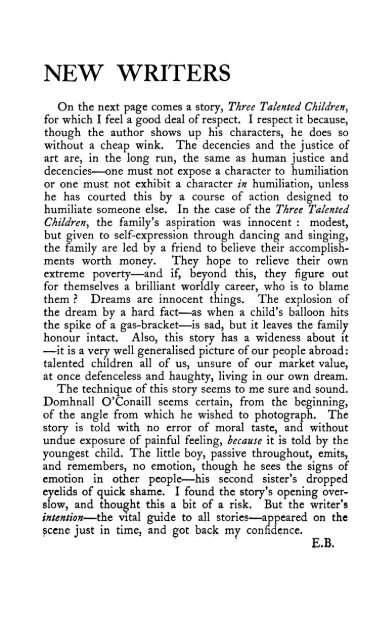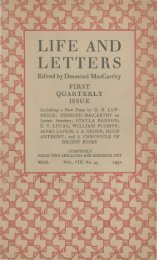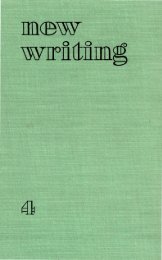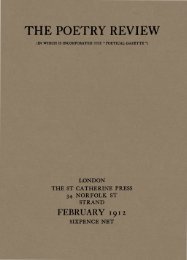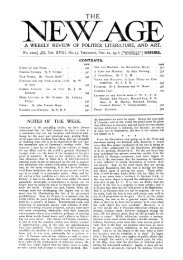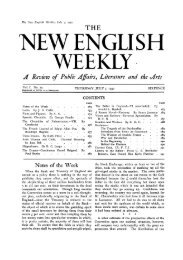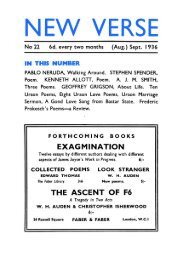Vol. 2 No. 1 - Modernist Magazines Project
Vol. 2 No. 1 - Modernist Magazines Project
Vol. 2 No. 1 - Modernist Magazines Project
Create successful ePaper yourself
Turn your PDF publications into a flip-book with our unique Google optimized e-Paper software.
NEW WRITERS<br />
On the next page comes a story. Three Talented Children,<br />
for which I feel a good deal of respect. I respect it because,<br />
though the author shows up his characters, he does so<br />
without a cheap wink. The decencies and the justice of<br />
art are, in the long run, the same as human justice and<br />
decencies—one must not expose a character to humiliation<br />
or one must not exhibit a character in humiliation, unless<br />
he has courted this by a course of action designed to<br />
humiliate someone else. In the case of the Three Talented<br />
Children, the family's aspiration was innocent : modest,<br />
but given to self-expression through dancing and singing,<br />
the family are led by a friend to believe their accomplishments<br />
worth money. They hope to relieve their own<br />
extreme poverty—and if, beyond this, they figure out<br />
for themselves a brilliant worldly career, who is to blame<br />
them ? Dreams are innocent things. The explosion of<br />
the dream by a hard fact—as when a child's balloon hits<br />
the spike of a gas-bracket—is sad, but it leaves the family<br />
honour intact. Also, this story has a wideness about it<br />
—it is a very well generalised picture of our people abroad:<br />
talented children all of us, unsure of our market value,<br />
at once defenceless and haughty, living in our own dream.<br />
The technique of this story seems to me sure and sound.<br />
Domhnall O'Conaill seems certain, from the beginning,<br />
of the angle from which he wished to photograph. The<br />
story is told with no error of moral taste, and without<br />
undue exposure of painful feeling, because it is told by the<br />
youngest child. The little boy, passive throughout, emits,<br />
and remembers, no emotion, though he sees the signs of<br />
emotion in other people—his second sister's dropped<br />
eyelids of quick shame. I found the story's opening overslow,<br />
and thought this a bit of a risk. But the writer's<br />
intention—the vital guide to all stories—appeared on the<br />
scene just in time, and got back my confidence.<br />
E.B.


